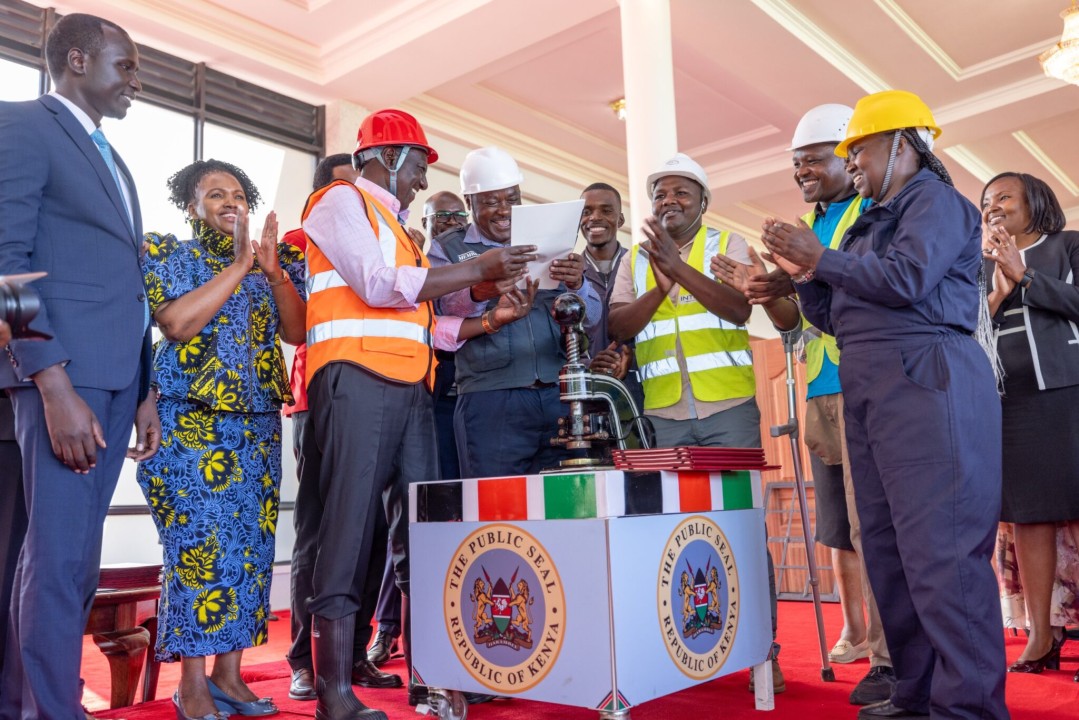President Ruto pushes through with Affordable Housing Law


Welcome back to the Vault!
This week, we report on housing developments in Kenya and explore Zambia’s fresh approach to financial inclusion. To top it off, we provide some interesting data on the forthcoming elections in Senegal.
Feel free to share your thoughts with us, check out our website for the latest policies, and let us know if you need any insight on public policies, regulations, and guidelines in Africa.

After suffering an initial legal setback, President Ruto has claimed victory by pushing the revised Affordable Housing Bill through the nation’s legislative houses and signing the bill into law on 19th March 2024.
The law establishes a framework for providing affordable housing to Kenyans and reintroduces monthly housing levy deductions that were abolished by the Court of Appeal in January. The major highlights of the new law are:
While the President has declared that implementation of the housing programme will benefit Kenyans, especially the poor or low-income earners by “creating jobs, providing decent housing and reducing agricultural land fragmentation” and ensuring that families across the country live in a dignified manner, a section of the citizenry has raised some policy and implementation concerns.
A principal concern that has been expressed is that the policy brings an additional tax burden and there is no clear sense of how the planned housing will be distributed. It is also unclear how government intends to enforce payment of the levy on persons in the informal sector.
Despite these outstanding concerns, the government is taking a victory lap and pushing on with implementation of the housing policy.

Elsewhere in the southern region of the continent, the Zambian government made a significant announcement last week, unveiling its long-anticipated new financial inclusion strategy. This initiative has been in development since 2023, following the expiration of the previous National Financial Inclusion Strategy spanning from 2017 to 2022. Scheduled to be in place until 2028, this freshly minted strategy reveals three main objectives:
The government said the strategy aims to build upon the groundwork laid by the 2017 strategy, including building off of the growth in financial inclusion, the number of persons with access to financial services has increased from 59.3% in 2015 to 69.4% in 2020. With the introduction of the new strategy, the government sets its sights on an even loftier goal—a target of 85% financial inclusion by 2028.
This new policy opens a plethora of market opportunities for financial sector businesses, from fintech companies to mobile money operators eager to expand their presence in Zambia. Specifically, the strategy emphasizes credit, insurance, and investment, offering investors a ripe landscape, especially within the underserved segments of the population. Enhancing the regulatory framework, however, remains imperative to facilitate the expansion of financial innovation to the excluded sections in Zambia.
Senegalese are heading to the polls on 24th March 2024 to elect their new president. The successful candidate is set to take over from the incumbent President Macky Sall, whose term ends in April. While 19 candidates are vying for the presidency, the main contest is between the former Prime Minister Amadou Ba from the ruling party, Khalifa Sall who is the former mayor of the capital Dakar and Bassirou Diomaye Faye, who replaced the opposition leader Ousmane Sonko.
What are the main issues for voters?
Despite the success of Sall’s administration in boosting investment in infrastructure, some argue that it has not translated into an improvement in the quality of life for the Senegalese. Some of the challenges faced by the country include:
Voter Turnout
Senegal, a nation with no history of coup d’états, has consistently recorded a high level of participation in its presidential elections since gaining independence. The country has achieved an average voter turnout of 59.4% in presidential elections since 1983 and ranks tenth in West Africa.

What policy and insight do you seek?
Whether you are a government official, civil society organization, or researcher, our repository provides comprehensive access to public policies, regulations, and guidelines across Africa. We provide insights and intelligence on these regional policies and regulations for research, advocacy, policymaking, and investing.
Get in touch with us here: <mailto:team@policyvault.africa>.

We’re also tracking the latest current events in the news, and how they may affect the decisions of policymakers. Below are some of the latest developments.
Egypt| EU announces US$8 billion aid package for Egypt
Last Sunday, the European Union announced an aid package worth $8 billion for Egypt. This aid is provided in response to concerns about economic pressure and conflicts in neighboring countries potentially leading to an increase in migration to European shores. The deal is set to be signed during a visit by European Commission President Ursula von der Leyen, along with leaders from Belgium, Italy, Austria, Cyprus, and Greece. The aid package includes grants and loans that will be distributed over the next three years and is aimed at supporting Egypt.
Niger| Military Government revokes military agreement with the US
The Niger government has abruptly terminated a military agreement that permitted the presence of U.S. Department of Defense personnel (both military and civilian staff) on Nigerien soil. The US had been using its base in Niger to monitor jihadist activity in the region.
The junta’s decision to sever ties with the US comes amidst a closer relationship with Russia and the expulsion of French troops in December. The Nigerien authorities state that the US presence in Niger is illegal and violates constitutional and democratic principles. They also alleged that the US delegation accused Niger of engaging in a secret deal to supply uranium to Iran, which the junta condemned as cynical and reminiscent of the Iraq war.
Visit www.policyvault.africa to check some of our recently published insights, which provide you with deeper analysis and context of matters at the intersection of public policy and current events.